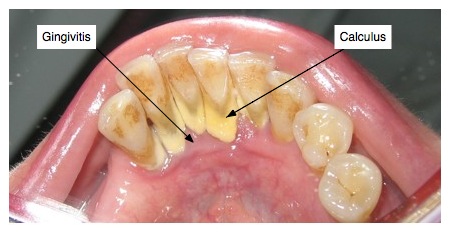

That's why one of the things every hygienist does is to help you remove it. Plaque control directly relates to tartar prevention and is known to prevent cavities, gingivitis, and gum disease. Brushing at least twice a day and flossing daily will go far in reducing the need to look for ways to remove tartar. You can do this with proper home care and visiting the dentist regularly for check-ups and professional cleanings.
#Dental calculus broke off how to#
Until then, if you're wondering how to reduce the amount of tartar that forms on your teeth, the best thing you can do is to reduce plaque and calculus buildup in the first place. If a mouth wash arises that research shows as a great option for dissolving tartar, they'll be all for it. So, what would your hygienist think about dissolving your tartar? Well, as dental professionals do, they'll go with the research.

This study was not conducted on a human mouth, and of course, no one wants to swish mouthwash for that long! But only after it had been soaking for 4.5 and 16 hours. A percentage of the mineral content of the tartar was dissolved in the rinse. The study found that there was 47 % more new calculus and 10% more new plaque formed when using the antimicrobial mouth rinse versus the anti-calculus rinse.Īnother study tested an anti-tartar rinse's effectiveness by soaking calculus samples in vitro or in the laboratory setting. One study compared chlorhexidine's use - an antimicrobial mouth rinse widely used in dentistry - and a commercial anti-calculus mouth rinse. It would be nice to be able to wash tartar away, wouldn't it? The truth is the jury is still out on the effectiveness of tartar removal rinses.


 0 kommentar(er)
0 kommentar(er)
